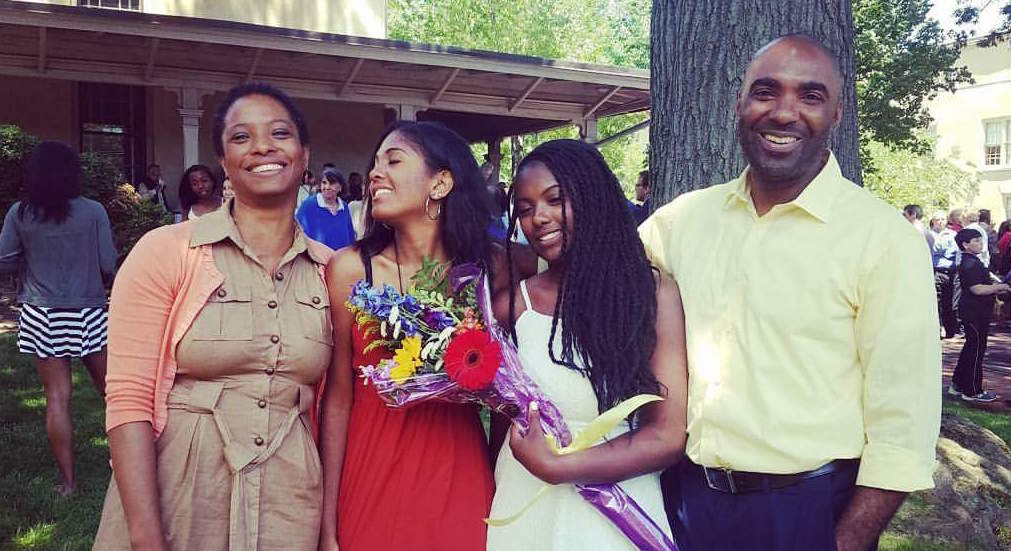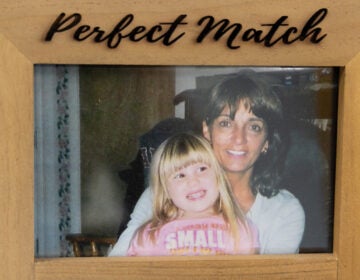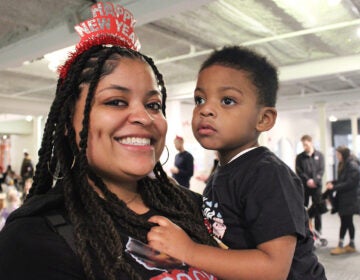Finding joy in that black girl magic
In a time when children are forced to grow up too fast, my wife and I feel fortunate to be able to watch our two teenage daughters ease into adolescence.

Dwayne Wharton (right) is shown with his wife and daughters. (Image courtesy of Dwayne Wharton)
WHYY celebrates Black History Month with Philly.com by publishing essays for their series Black History Untold: Joy, culminating in a live event at WHYY on Tuesday, Feb. 28. Convening African American community leaders, the program features networking over cocktails and hors d’oeuvres, live entertainment, and a panel discussion co-moderated by the Inquirer’s Sofiya Ballin and WHYY’s The Remix host Dr. James Peterson.
—
In a time when children are forced to grow up too fast, my wife and I feel fortunate to be able to watch our two teenage daughters ease into adolescence and learn to embrace their black girl magic.
Like most teens, they are addicted to their phones, play music not to our choosing way too loudly, struggle at times to manage school work, sports, and social lives, and fight with us about makeup, messy rooms, and clothing choices. And we talk a lot about race, gender, health, and politics. They teach us a lot.
By most accounts, they have lived a life of privilege. We worry about striking a balance between giving them fundamentally everything they need to grow into their true and best selves, while avoiding ruining them. They are fine young women — kind, smart, and well-adjusted — and we are very proud of them.
My youngest daughter recently told me she is the happiest she has ever been. I understand that there are seasons to life and this level of contentment is not a permanent state, but as her father this brought me great joy and affirmation. I have always thought that the most important work I will ever do will be within the walls of my own home.
Our family was feeling pretty good about the future until the 2016 election hit us like a body blow. We were told a lie about America that we did not believe. It was a story that highlighted frustrations and pitted citizens against each other, and our country against the world. It was a story fueled by hatred, intolerance, and suspicion instead of empathy. It offered no solutions and failed to inspire. It was a story that ignored our country’s long, painful, and continual march toward justice and equality for all. It offered no pride in our past or hope for the future. One of the most challenging things I have had to do as a parent was to try to explain to my children why so many people bought into this story and how we as a nation arrived at this place.
As the director of external affairs for The Food Trust, I help to lead advocacy efforts to reduce health disparities in underserved communities in Philadelphia and across the nation. The World Health Organization says that “unequal distribution of health-damaging experiences is not in any sense a ‘natural’ phenomenon but is the result of a toxic combination of poor social policies, unfair economic arrangements where the already well-off and healthy become even richer and the poor who are already more likely to be ill become even poorer, and bad politics.”
I understand the implications of historic and structural racism and present day policies and how they contribute to what we see happening. But explaining how we got here, today, continues to be a struggle.
As the saying goes, “there but for the grace of God go I.” My life experiences continue to connect me to both ends of the socio-economic spectrum. I grew up in an under-resourced community in Germantown with low-performing schools, plenty of barriers and hazards, and seemingly few opportunities to lead a healthy life.
Today, I live not far from my birthplace, but my life is very different from that of my childhood, and that of my friends and relatives who continue to live in poverty. I strive to contribute to the creation of more fair, sustainable, and equitable communities — a world where, regardless of your ZIP code or genetic code, you have the ability to achieve optimal health and wellness for you and your family. For far too many, survival is a triumph and joy is hard to know. With humility and grace, I want what I have for everyone.
Since the election, my daughters have changed. I marvel at how their little activist spirits have been awakened.
They’re still doing their teenage thing, but also, with friends, some who are white, Jewish, Latina, male, and some who are black girls like them, they have found time and interest in heading into the streets to tell the GOP to keep their “hands off me,” affirm that Black Lives Matter, Fight for $15, and stand for the environment, those who are being marginalized, and for their own future. They are “woke,” showing a tremendous capacity beyond their years for social consciousness and action.
I am hopeful that the change we want to see will be led by, and achieved by, them all. And I pledge to do what I can to lead by example and help pave the way. My girls are troubled and concerned at every turn of the news cycle, but they still remember to smile and laugh.
Somehow they innately know that joy is the greatest form of resistance. They feel empowered and emboldened. I feel pride and awe. Together, I know deep in my heart, we’re going to be alright, and help make things right, and this helps me to smile and brings joy to these days.
—
Dwayne Wharton is director of external affairs for The Food Trust.
WHYY is your source for fact-based, in-depth journalism and information. As a nonprofit organization, we rely on financial support from readers like you. Please give today.




